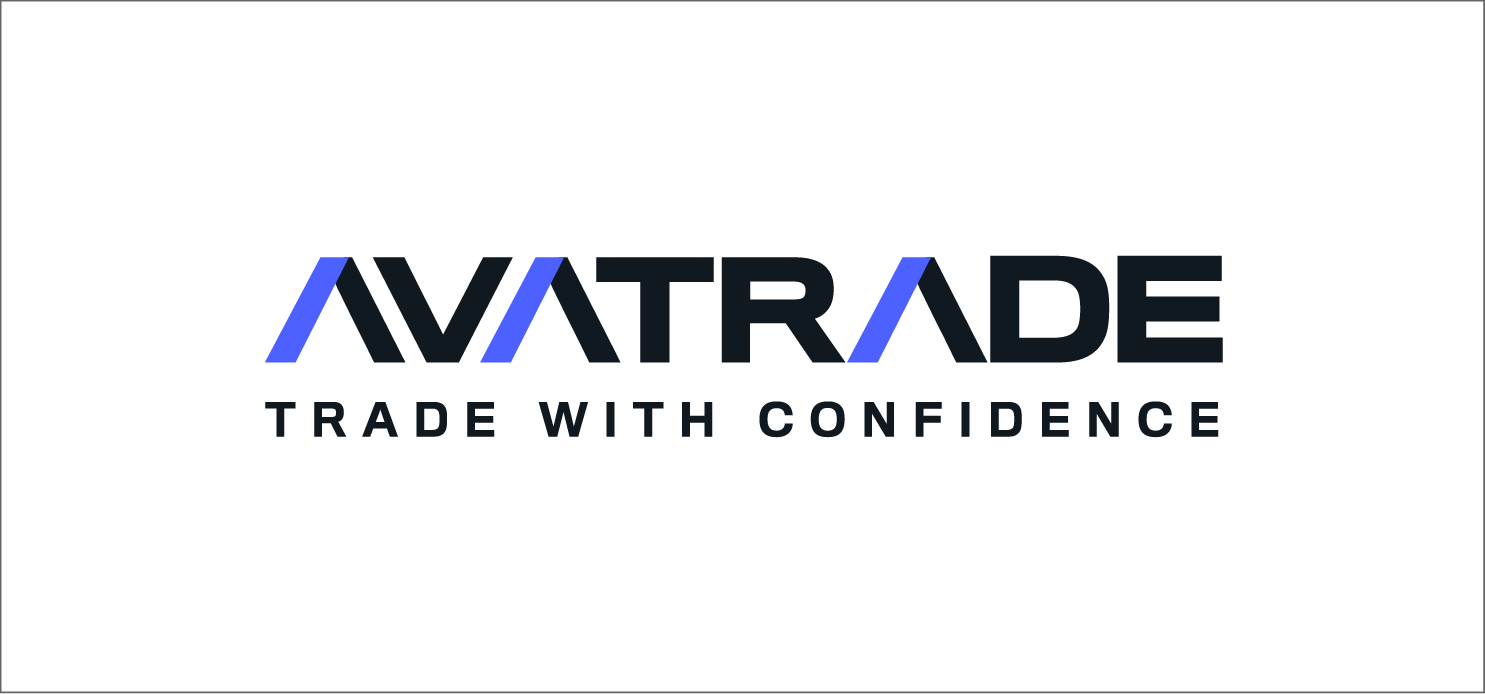Best 9 Stockbrokers in Nigeria for 2026
All products and services featured are independently selected by WikiJob. When you register or purchase through links on this page, we may earn a commission.
- A List of the Top Stockbrokers in Nigeria for January 2026:
- Comparison Chart for the Top Stockbrokers in Nigeria for January 2026:
- Description of the Best Stockbrokers in Nigeria for January 2026
- What Are the Different Types of Stockbrokers?
empty
empty
empty
- How Do Stockbrokers Make Money?
- Are Stockbrokers in Nigeria Regulated?
- Key Considerations Before You Choose a Stockbroker in Nigeria
empty
empty
empty
empty
empty
empty
empty
empty
empty
empty
empty
empty
- Frequently Asked Questions
- Final Thoughts
As a beginner trader in Nigeria, or even a seasoned professional looking for a change, finding Nigerian stock brokers who offer the right level of service at the right price can be a challenge.
Some of the best online trading platforms in Nigeria are provided by brokers who are based outside of the immediate continent, with European headquarters and regulation from the FCA or even ASIC.
The top brokers in Nigeria should be able to offer you access to the stocks you want to trade, without charging the earth for each transaction – and they should be regulated and considered safe, too.
In this article we will look at some of the online stock brokers in Nigeria, as well as the features they offer that might match what you are looking for in a stock broker.
Want to know if trading is the right option for you? Read Signs You Are Ready To Live Trade.
A List of the Top Stockbrokers in Nigeria for January 2026:
Comparison Chart for the Top Stockbrokers in Nigeria for January 2026:
Regulation ASIC, FCA, CMA, SCB, CySEC, DFSA, BaFIN | Trading Platforms MT4, MT5, cTrader, TradingView, Pepperstone platform | Minimum Deposit $0 | |||
Regulation ASIC, FSCA, Central Bank | Trading Platforms MT4, MT5, AvaTradeGO | Minimum Deposit $100 | |||
Regulation FCA, CySEC | Trading Platforms xStation, MT4 | Minimum Deposit $0 | |||
Regulation FCA, CySEC, CFTC, NFA | Trading Platforms IG Web Platform, MT4, L2 Dealer | Minimum Deposit $250 | |||
Broker Switch Markets | Regulation ASIC | Trading Platforms MT4 | Minimum Deposit $50 | ||
Broker Saxo | Regulation FSA, ASIC, FCA, others | Trading Platforms SaxoTraderGO, SaxoTraderPRO, MT4 | Minimum Deposit None | ||
Broker Interactive Brokers | Regulation SEC, CFTC, FCA, others | Trading Platforms Trader Workstation | Minimum Deposit $0 | ||
Regulation FCA, CySEC | Trading Platforms MT4, MT5 | Minimum Deposit |
Spread bets and CFDs are complex instruments and come with a high risk of losing money rapidly due to leverage. 68% of retail investor accounts lose money when trading spread bets and CFDs with this provider. You should consider whether you understand how spread bets and CFDs work, and whether you can afford to take the high risk of losing your money.
Description of the Best Stockbrokers in Nigeria for January 2026
Now that you know about the different types of brokers and what to consider in your search, here are the best stockbrokers to use if you live in Nigeria.
1. Pepperstone
Pros
- Extensively regulated
- No minimum deposit
- Low fees and mostly free withdrawals
- Good customer service
Cons
- No investor protection for clients outside UK, EU and EEA
- Withdrawal fee for international bank wires
- CFDs only
Best for: Traders interested in forex
Trading fees: Low forex fees, but high CFD financing fees
Minimum deposit: $0
Assets traded: Stocks CFDs, Forex CFDs, indices CFDs, commodity CFDs, cryptocurrency CFDs, ETF CFDs
Pepperstone is a CFD broker with a focus on forex, regulated by FCA, BaFin, CySEC, ASIC, DFSA, SCB, and CMA.
With offices in Africa, Pepperstone’s research provision includes daily articles, videos, weekly webinars, economic calendar, AutoChartist software, Smart Trader Tools, and risk management tools.
Educational resources include articles, trading guides, webinars, MetaTrader 4 course, forex trading course, and educational videos.
Pepperstone offers 24/5 customer service by telephone, email or live chat.
To find out more, read our Pepperstone Review.
2. AvaTrade
Pros
- Worldwide regulated
- Multiple platforms – MT4, MT5, etc.
- Negative balance protection
- 20% welcome bonus
- Educational content
- Wide rage of payments methods
- Fixed spreads
Cons
- You can’t buy stocks
- Quarterly and annual inactivity fees
- Custumer support is not available 24/7
- No bonus for EU based clients
- No US clients accepted
- Imitated crypto assets
AvaTrade is a CFD Regulated broker with +1,000 financial instruments and multiple trading platforms. It has been operating since 2006.
It offers a 20% welcome bonus up to $10,000, according to regulation and a free 21-day demo account with $100,000.
Instruments include:
- Metals
- Commodities
- Stocks
- FX Options
- Oil
- ETFs
- Options
- Crypto currencies
- CFDs
- Indexes
- Shares
- Spread betting
- Indices
- Forex
- Bonds
AVATrade EU Ltd is regulated by the Central Bank of Ireland. (No.C53877) Ava Trade Markets Ltd. is regulated by the B.V.I Financial Services Commission. It is also highly regulated in Australia, South Africa, Japan, Middle East, Cyprus and Israel
You can not trade with AvaTrade in the US, North Korea, New Zealand, Iran or Belgium.
Mínimum deposit of $100, no withdraw limit and no fees.
3. XTB
Pros
- Regulated by the FCA
- Low forex fees
- Fast withdrawal and deposit with no fee
- Live chat customer service
Cons
- No US clients
- Limited product portfolio
- High fees for stock CFDs
Best for: Traders wanting to keep their costs low
Trading fees: Low forex fees but high stock CFD fees
Minimum deposit: $0
Assets traded: Forex, stock CFDs, commodity CFDs, ETF CFDs, indices CFDs, cryptocurrencies
XTB is a forex and CFD broker regulated by FCA, CySEC, KNF, CNMV, and IFSC.
Its research offering includes analytical tools accessed through its platform, Market Newsfeed, forex price tables, and a market calendar.
The XTB ‘Learn to Trade’ section includes courses via the Trading Academy, live webinars, and articles.
For clients outside Europe, XTB customer service cover is 24/7, by telephone or email.
CFDs are complex instruments and come with a high risk of losing money rapidly due to leverage. 69-80% of retail investor accounts lose money when trading CFDs with this provider. You should consider whether you understand how CFDs work and whether you can afford to take the high risk of losing your money.
4. IG
IG invented spread betting in 1974 and today is the world’s leading online trading provider with more traders trusting them with their money than anyone else
IG is authorised and regulated by the FCA and provides traders access to over 18,000 markets. IG offers more 24-hour indices than any other provider, and extended hours on over 70 key US stocks
For those who prefer to own the underlying asset, IG offers access to over 13,000 global shares and ETFs, or a wealth portfolio managed by one of their experts.
Benefits:
- Advanced platform and charting – L2 dealer, ProRealTime and MT4
- Demo account
- Extended trading hours
- Extensive range of products
- Daily expert analysis & educational resources
- Round-the-clock customer service
- Negative balance protection for retail clients
Based on revenue (published financial statements, October 2022). 24/7 excludes the hours from 10 pm Friday to 8 am Saturday (UK time), and 20 minutes just before the weekday market opens on Sunday night.
Your capital is at risk. Spread bets and CFDs are complex instruments and come with a high risk of losing money rapidly due to leverage. 70% of retail investor accounts lose money when trading spread bets and CFDs with this provider. You should consider whether you understand how spread bets and CFDs work, and whether you can afford to take the high risk of losing your money.
5. Switch Markets
Pros
- Regulated by ASIC
- Low minimum deposits
- No deposit fee
- No inactivity fee
- Free VPS
- Social trading
- Tight spreads
- Useful trading tools and research
Cons
- No US clients
- Not FCA regulated
Founded in 2019, SwitchMarkets.com styles itself as 'the place traders come to trade', and with an enormous range of trading instruments available through MetaTrader 4 and a proprietary platform, SwitchMarkets.com has a lot to offer.
The parent company of SwitchMarkets.com (Royal ETP) is regulated by ASIC and CySEC as well as some other lower-tier jurisdictions, while client funds are segregated in Tier 1 banks – which makes it more secure.
With SwitchMarkets.com you can trade:
- 62 Forex pairs
- 8 metals
- 21 indices
- 86 share CFDs
- 4 cryptocurrencies
There are just two account types available, which makes getting started a breeze – you can decide to go for a Standard account that offers zero commission and spreads as low as 0.6 pips, or a Pro account which has spreads from 0.0 pips and a $7 per lot round turn commission instead. Each account has a minimum deposit of just $50.
For international traders, and those that want flexibility in both deposits and withdrawals, there are multiple options – from the usual credit and debit card to PayPal and eWallets like Neteller and Skrill, for example. Deposits and withdrawals are simple, fast and free.
The education available on the platform is also simple – several ‘cheat sheets’ covering all you need to know about trading, from terms to strategy, all in downloadable PDF formats and all for free.
There are several tools available on the platform to improve your trading strategy, including a Market Heat Map, lot size and Forex profit calculators, and even EA tools.
As a relatively new broker, traders will find many offers to entice them to sign up – from a free VPS to a credit bonus.
Switch Markets does not provide trading services to anyone residing in the USA, Yemen, Iran and North Korea nor any other countries where the offer of our products are prohibited or restricted by laws.
6. Saxo
Pros
- Heavily regulated
- Good product portfolio
- Low forex fees
- No withdrawal or inactivity fees
Cons
- Does not accept US clients
- High fees for options, futures and bonds
Best for: Traders with advanced trading expertise
Trading fees: Mostly low to average fees, but high fees for bonds, options and futures
Assets traded: stocks, commodities, forex, ETFs, bonds, CFDs
Saxo is regulated by FCA, FSA, the Swiss Federal Banking Commission and several other global regulatory bodies.
Its platform provides a range of technical analysis tools and interactive charts. Research resources are to a high standard, including real-time newsfeed, commentary by trading experts, stock market reports and trading idea generators.
Saxo's educational resources include courses, videos, events and webinars.
Saxo customer service is 24/5 and can be reached by email or telephone.
To find out more, read our Saxo Review.
7. Interactive Brokers
Pros
- Regulated
- Wide range of offerings
- Low commission
- Socially responsible
- 24/5 customer support across multiple channels
Cons
- No additional platforms
- Inactivity fees
Best for: Experienced active traders and institutional investors
Trading fees: Depends on the type of account you open. The basic account has low fees, but the Pro account has high fees. ETFs are available with no trading fees.
Minimum deposit: Varies depending on the type of account. $0 for a cash account. $110,000 for a Portfolio Margin account.
Assets traded: stocks, commodities, forex, ETFs, bonds, CFDs
Interactive Brokers is regulated by FCA, US SEC, and CFTC. Its range of research resources includes technical analysis tools, a newsfeed and a Traders Calendar.
Educational resources and courses are provided through IBKR Campus, including Traders Academy, webinars, Traders Insight, blog, and Student Trading Lab.
There are also videos and a trading glossary.
The customer service is 24/5 by telephone or live chat.
For more, read our Interactive Brokers Review.

8. OctaFX
Pros
- Low minimum deposit
- No deposit or withdrawal fees
- Copy trading
- MetaTrader 4 (MT4) and MetaTrader 5 (MT5)
- Demo account
- Accepts a range of payment methods
Cons
- Limited regulation
- Limited product offerings
- Limited educational and research resources
Best for: Traders who want to open an Islamic account
Trading fees: Vary depending on the type of account you open
Minimum deposit: $25
Assets traded: Forex, stock CFDs, commodity CFDs, cryptocurrency CFDs
Regulated by the tier-2 CySEC only, OctaFX is a forex and CFD broker. This single tier-2 regulation means that OctaFX is not as safe as the other brokers listed in this article. Clients trading in forex is especially at risk.
Its research offering is more limited than many of its competitors, including a daily market commentary, forex news, webinars, and access to AutoChartist.
OctaFX educational resources focus on forex and include webinars, videos, and a trading glossary.
Customer service is available 24/5 by email and telephone.
What Are the Different Types of Stockbrokers?
There are three types of stockbroking firms, each suitable for a different set of customer requirements.
Full-Service Brokers
Pros
- Handing over your portfolio to be managed by a full-service broker saves you the time that you would normally spend both on trading and building your expertise.
Cons
- This type of broker is the most expensive to use, and you have less control over your portfolio than with more limited service brokers.
This type of broker provides a complete portfolio management service, including any of the following:
- Trading research and advice
- Carrying out transactions for you
- Portfolio building and analysis
- Tax advice
- Portfolio reports
- Wealth management
You will generally be assigned a personal broker to handle your portfolio.
A full-service broker is the most expensive but generally provides access to an extensive research and analysis team.
Discount Brokers
Pros
- A discount broker is less expensive than a full-service broker and you retain control over your portfolio.
Cons
- You have to spend time on research and building your trading expertise as a discount broker does not offer trading advice.
This type of broker is less expensive than a full-service broker but provides a more limited service. A discount broker will carry out your trading transactions; however, it will not offer any trading advice.
Online Stockbroking Firms
Pros
- Not as expensive as a full-service stockbroker, using an online broker puts you in complete control.
Cons
- You generally have access to research and educational resources, but an online broker will not provide personalized advisory service.
This type of broker provides direct online access to its trading platform. Online stockbrokers are used by new traders but are most suitable for those with more experience.
Most online stockbrokers also provide research and educational resources.
How Do Stockbrokers Make Money?
All types of stockbroker earn money from the commission and fees they charge their customers. Beyond trading, this might include charges for:
- Leverage
- Deposit and withdrawal fees
- Account inactivity
A stockbroker may also earn interest on uninvested client funds.
Are Stockbrokers in Nigeria Regulated?
To trade on the Nigerian stock exchanges, a stockbroker must have authority from the Central Bank of Nigeria.
However, any stockbroker you use must have tier-1 regulation, for instance, FCA (Financial Conduct Authority) and ASIC (Australian Securities & Investment Commission).
Such financial regulation provides you and your money with greater security.
Key Considerations Before You Choose a Stockbroker in Nigeria
When deciding which brokerage to use, there are several crucial factors you should consider at the start.
What Service Do You Need?
What kind of service do you want a brokerage to provide?
The type of questions you should ask yourself include:
- Do you want a fully managed service that will carry out the trading for you but also provide research and advice?
- Do you have the confidence to make all the trading decisions yourself and, therefore, want a broker who will conduct your transactions without offering advice?
- Would you like to trade online but also have access to research and education resources?
- Would you prefer one-to-one advice and personalized service?
- How much money do you want to spend on trading and fees?
- What volume of trading do you intend to carry out?
Your answers will point to the best type of stockbroker for you.
Listen to Other Traders
Which brokerage firm is recommended because of a positive track record and which have been reviewed in a less favorable light by other traders?
Find a wide range of reviews and recommendations to build a genuine picture. Remember that different traders have different stockbroker requirements, so look for reviews from traders who share your market preferences.
Is the Stockbroker Regulated?
Regulation, especially tier-1 regulation, is a crucial indicator that a stockbroker carries some level of security for clients and their money.
Any brokerage should clearly state who it is regulated by on its website.
Do You Want to Deposit and Withdraw in Nigerian Currency (Ngn)?
Check whether the stockbroker permits account deposits and withdrawals in Nigerian currency.
If not, how will you handle this?
Does the Broker Keep Client Funds Separate For Safety?
Does the stockbroker keep client funds in a separate account to its own money?
A stockbroker who banks client money along with its own may accidentally or intentionally use client funds for its own purposes.
Separating client and broker money into different accounts provides more security for the client and an extra level of transparency.
What Assets Does It Trade?
If you are interested in trading forex or commodities, it makes no sense to use a stockbroker that does not offer either of these trading assets.
Before you sign up to use a broker, first find out what financial markets it trades in.
What Are the Trading and Non-Trading Fees?
Ask the stockbroker to provide a list of all the trading and non-trading fees you would be expected to pay.
For example, does the broker charge a flat fee or a percentage fee? Is there a maximum commission charge?
Non-trading or administrative charges might include deposit and withdrawal fees.
What Trading Platform Do You Want to Use and Why?
A stock trading platform is a software that can be downloaded, or accessed online or via a mobile app. A trading platform enables you to carry out trading transactions and analyze your portfolio performance.
What trading platform does the stockbroker provide? Some stockbrokers will offer third-party trading platforms like MetaTrader, while others will use its own in-house platform.
Further considerations might include:
- What type of client access does the broker offer to that platform?
- What analysis tools does the platform provide?
- To what extent can you customize platform charts?
- Does the platform suit your level of expertise?
- Do you have free access to the platform, or does the broker charge a fee?
To find out more, read our MetaTrader Review.
Does It Provide Social Copy Trading?
Social copy trading is increasingly seen as a path into trading for individuals new to the process.
It combines copy trading, where a trader copies the transactions of more experienced traders, with building trading knowledge by learning from the trading community, conducting your research and taking advantage of trading educational resources.
If you are interested in social copy trading, look for brokers who provide all of the following:
- Copy-trading
- Research and educational resources
- Access to a community of traders
For more information, read What Is Social Copy Trading?
How Good Are the Analytical Tools?
Technical analysis provides valuable information on what trading assets to buy or sell.
If you intend to personally decide what to trade, then the technical analysis tools offered by the broker’s trading platform can be an important factor in deciding which is the right broker for you.
For instance, does the platform provide a range of indicators such as moving averages or trading volume? Is it easy to customize the platform charts to find the exact information you need?
How Good Are the Educational Resources?
If you want to build your trading knowledge, your stockbroker can be a great place to start.
Educational resources they may provide include:
- Articles
- News-feed
- Videos
- Webinars
- Courses
What Is Its Customer Service Like?
Whichever type of brokerage service you use, check whether what it offers meets your individual needs.
For instance:
- 24/7 coverage or 24 hours Monday to Friday
- Multi-lingual
- Contact by telephone, email or live chat
Frequently Asked Questions
Being a stockbroker can be a very beneficial career to consider. It is important to gain the correct qualifications and register with the Chartered Institute of Stockbrokers of Nigeria.
Once you are qualified and registered, you could be able to earn an average of three million Naira per year.
If you are looking for Nigerian stock brokers, there are several different options to consider including:
The exact one you choose will depend on your personal needs and requirements.
The average salary for a stockbroker in Nigeria is three million Naira per year.
To invest in stocks, you could choose to use an independent stockbroker or one of the many available online platforms.
For many people, platforms allow them the flexibility to make their own decisions and control their investments.
They can be. Like any job, it will depend on what you do and how hard you work.
In Nigeria, stockbrokers earn an average of three million Naira per year. Your earning potential can be increased by ensuring that you are registered with an appropriate regulatory body.
To become a stockbroker in Nigeria, you must first hold a degree in a relevant subject from a reputable university or polytechnic college. This should be something like banking and finance, accounting or economics.
You will also need to be given authority from the Central Bank of Nigeria. It is also a good idea to be regulated by a tier-1 regulator such as the Financial Conduct Authority.
As you are required to hold a minimum of a degree, you will need to be at least 18 before you become a stockbroker.
The exact age will depend on how long it takes you to gain your degree and register with the appropriate bodies.
No matter where in the world you are, you will find people who are trying to scam you out of your money. This is the same in Nigeria as in any other part of the world.
This is why you should make sure that you choose a stockbroker who is registered with an appropriate regulatory body. This will give you some security with the knowledge that your stockbroker is answerable to a governing body that is dedicated to looking after people's investments.
You will find bad stockbrokers in Nigeria, just as you would anywhere else. To make sure that you are choosing a reputable broker, you should choose one who holds the right certifications and is registered with an appropriate regulatory body such as the Financial Conduct Authority.
Final Thoughts
As a client in Nigeria, there is a wide range of stockbrokers available to you. Before choosing a broker, however, take the time to consider what type of service you require.
- Do you want to carry out trading transactions personally, or would you, rather instruct a broker to do that for you?
- What markets are you interested in, for instance, forex or stocks?
- Do you want financial advice, and research and educational resources?
- How much money do you have to spend?
When considering a broker, check how well regulated they are, what other traders think about them, and whether they bank client funds separately to their own.
How well are you and your funds protected?
WikiJob does not provide tax, investment, or financial services and advice. The information is being presented without consideration of the investment objectives, risk tolerance, or financial circumstances of any specific investor and might not be suitable for all investors. Past performance is not indicative of future results. Investing involves risk including the possible loss of principal.













